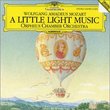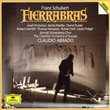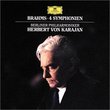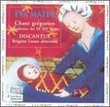| All Artists: Beethoven, Ashkenazy Title: Piano Sonatas Members Wishing: 1 Total Copies: 0 Label: Polygram Records Release Date: 11/10/1992 Genre: Classical Styles: Forms & Genres, Sonatas, Historical Periods, Classical (c.1770-1830), Romantic (c.1820-1910) Number of Discs: 1 SwapaCD Credits: 1 Other Editions: Piano Sonatas 109 & 111, Last Piano Sonatas UPC: 028943607629 |
Search - Beethoven, Ashkenazy :: Piano Sonatas
CD DetailsSimilar CDs
|
CD ReviewsHidden treasures Orpheus | on the road | 01/05/2006 (5 out of 5 stars) "Being out of print now for some time -at least in the Netherlands- this seems a hidden treasure of some sorts.
Allthough Vladimir Ashkenazy recorded Beethoven's sonatas integrally in the late seventies, the final three sonatas do not compare with these versions from 1992. Recording quality seems slightly different from the original Decca version - a bit more dynamically understated, yet with the same sense of etheric ambiance: One can hear birds singing outside Sint John's Hall in Luzern... Well, on to the music then; Beethoven's late pianosonatas are, as his late string-quartets, pieces of singular transcendent beauty. A tryptich, they really cannot be seen as individual sonatas and Ashkenazy understands this. It is as if the sonatas are part of an initiation into a realm impossible to define in words-only to be entered through pure music. Every preceeding sonata a necessary stage of a musical quest for salvation, nobody seems to realize this better than Ashkenazy. In some respects it seems that Ashkenazy pays hommage to the great Sviatoslav Richter- he shares his deep insight of Beethoven's epic view, creating a fluid language in which piano does not sound anymore as an instrument with limitations, yet begins to sound as something almost like a vesperian choir- the transition from the frenzied hymnic fuga's final part of opus 109 to the soothing wisdom of the first part of opus 110 can only be described as historical- the last tone lingers in quiet resignation as the first tone(not of hope, but of trust)of opus 110 allready preludes to the wondrous awakening of the Arietta of opus 111. Yet Ashkenazy is not tempted by the raving austerity allways present in Richter's impatient playing- every note is to Ashkenazy a universe in itself...One holds ones breath to witness the fragile ascension of the Arietta, only to find one's Self in this evocative search of the spirit. I do not know what happened during these recordings, but I do know it is something of great significance, something that surpases mere discussions of authenticity, interpretation etc. It is after all, the music that has to flow freely, not something that is appropriate or 'authentic'. Some may prefer a more intellectual approach, such as Alfred Brendel's brilliant rendition of these works. I for one do not believe in one absolute version- as necessary and true- there are many renditions of great merit and Brendel's is one of them. However... compared to Ashkenazy it lacks to me a certain feel of continuity and coherence and sounds analytical compared to Ashkenazy's sublime humanity. Not to forget Maurizio Pollini's classic recording... If you would twist my arm: Yes, of course Pollini's version is much closer to 'authentic Beethoven'. It is very immediate and has an almost irresistable rythmic drive to it, one can only love... Yet again- Ashkenazy much better understands the inherent beauty of these works-he alone seems to really fathom the profound truths of these works- truths that can only be pervayed in singing- something I only have witnessed in Ashkenazy's now beyond virtuosity playing. If I listen to them I FEEL the essential message of these sonatas. What it is? find out yourself..." |






